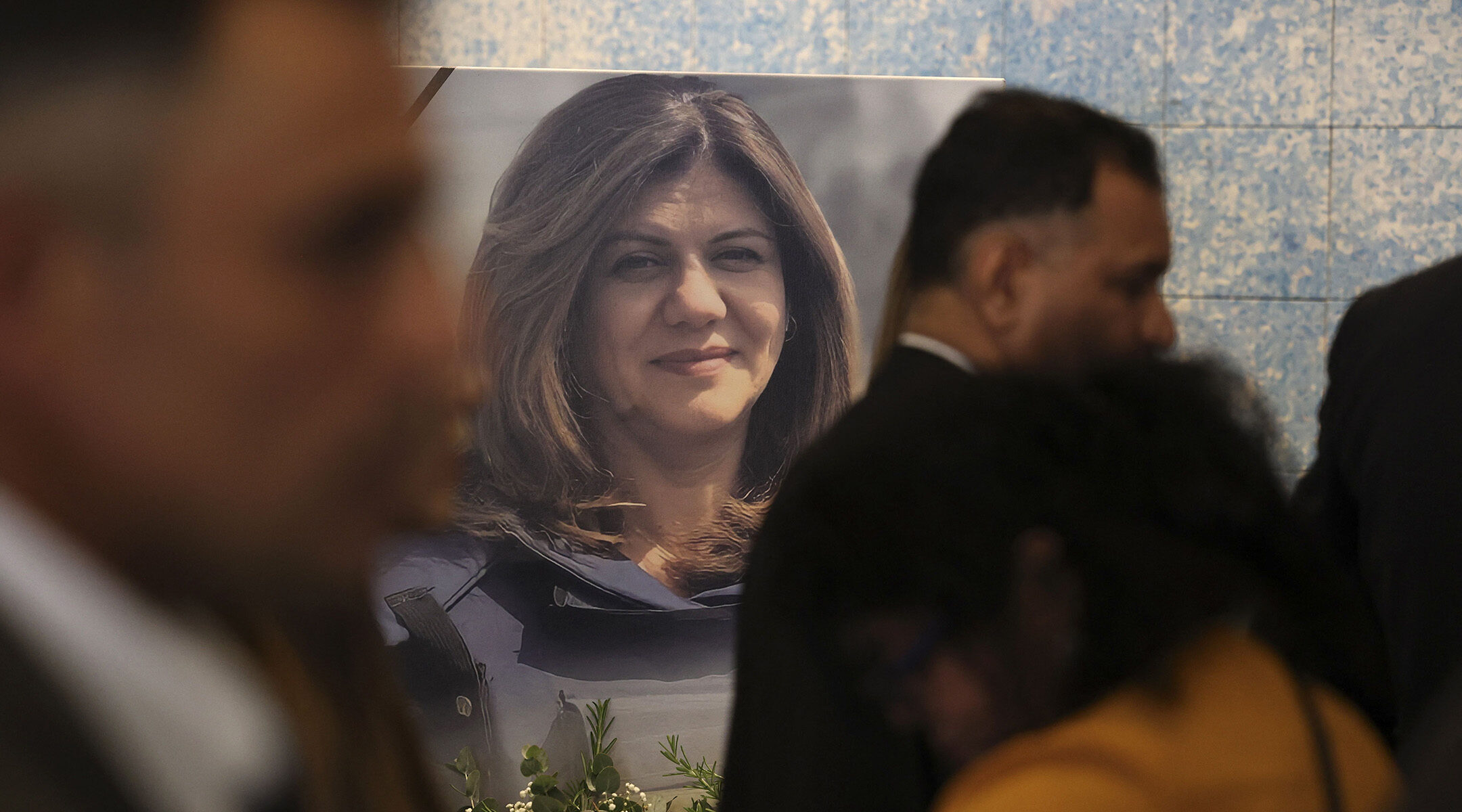(JTA) — A spokesman for the Israel Defense Forces apologized for the death of Palestinian journalist Shireen Abu Akleh, one year after she was killed while on assignment covering clashes in the West Bank city of Jenin.
“I think it’s an opportunity for me to say here that we are very sorry of the death of the late Shireen Abu Akleh,” said Rear Adm. Daniel Hagari, the IDF’s chief spokesman, in an appearance Thursday night on CNN. “She was a journalist, a very established journalist. In Israel we are a democracy and in a democracy we see high value in journalism and in a free press. And we want journalists to feel safe in Israel, especially in war time. And even if they criticize us, we want them to feel safe.”
The apology came as Israel is engaged in a conflict with Palestinian Islamic Jihad in Gaza, which the United States has designated as a terror group.
The apology is the latest stage in Israel’s shifting response to Abu Akleh’s death. At first, the IDF said it was likely not responsible for her death. But following multiple investigations by third parties indicating that Israeli forces likely killed Abu Akleh, the military acknowledged after its own probe that “there is a high probability” that an Israeli soldier fired the bullet. Israel maintains that her death was an accident.
Abu Akleh was an American citizen, and the U.S. government faced pressure to investigate her death. The United States endorsed Israel’s findings but the FBI opened an investigation into the incident months later. Israel criticized that probe and did not cooperate with it.
This week, the Committee to Protect Journalists released a report examining the deaths of 20 journalists in the West Bank and Gaza since 2001 at the hands of the IDF. Eighteen of the 20 were Palestinian. The report criticized Israel’s investigations of the killings as lackluster and said, “No one has ever been charged or held accountable for these deaths.”
JTA has documented Jewish history in real-time for over a century. Keep our journalism strong by joining us in supporting independent, award-winning reporting.






